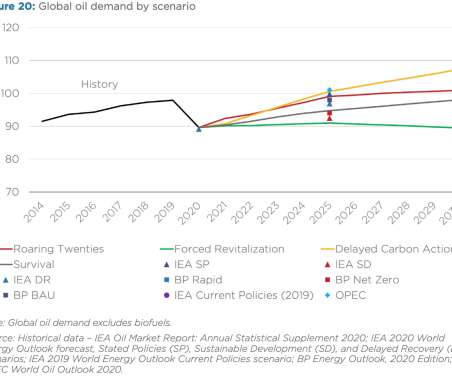Study finds carbon emissions benefits of reduction in oil demand depend on size of drop and global oil market structure
Green Car Congress
NOVEMBER 4, 2021
New research led by Mohammad Masnadi, assistant professor of chemical and petroleum engineering at the University of Pittsburgh Swanson School of Engineering, offers a closer look at the relationship between decreasing demand for oil and a resilient, varied oil market—and the carbon footprint associated with both.

































Let's personalize your content